- Home
- William Shakespeare
King John & Henry VIII Page 29
King John & Henry VIII Read online
Page 29
nose: all that stand about him are under the line41, they need
no other penance: that fire-drake42 did I hit three times on the
head, and three times was his nose discharged43 against me:
he stands there like a mortar-piece, to blow us44. There was a
haberdasher’s wife of small wit near him, that railed upon45
me till her pinked porringer fell off her head, for kindling46
such a combustion in the state. I missed the meteor47 once,
and hit that woman, who cried out ‘Clubs!’48, when I might see
from far some forty truncheoners draw to her succour49,
which were the hope o’th’Strand, where she was quartered50.
They fell on: I made good my place: at length they came to51
th’broomstaff to me: I defied ’em still, when suddenly a file of
boys behind ’em, loose shot53, delivered such a shower of
pebbles, that I was fain54 to draw mine honour in, and let ’em
win the work55: the devil was amongst ’em, I think, surely.
PORTER These are the youths56 that thunder at a playhouse,
and fight for bitten apples, that no audience but the
tribulation of Tower Hill, or the limbs of Limehouse58, their
dear brothers, are able to endure. I have some of ’em in limbo59
patrum, and there they are like60 to dance these three days,
besides the running banquet of two beadles61 that is to come.
Enter Lord Chamberlain
CHAMBERLAIN Mercy o’me: what a multitude are here!
They grow still, too: from all parts they are coming,
As if we kept a fair here! Where are these porters,
To the Porter and his Man
These lazy knaves?— You’ve made a fine hand65, fellows:
There’s a trim66 rabble let in: are all these
Your faithful friends o’th’suburbs67? We shall have
Great store of room68, no doubt, left for the ladies,
When they pass back from the christening!
PORTER An’t70 please your honour,
We are but men, and what so many may do,
Not being torn a-pieces, we have done:
An army cannot rule73 ’em.
CHAMBERLAIN As I live,
If the king blame me for’t, I’ll lay ye all75
By th’heels, and suddenly76, and on your heads
Clap round77 fines for neglect: you’re lazy knaves,
And here ye lie baiting of bombards78, when
Trumpet
Ye should do service79. Hark, the trumpets sound:
They’re come already from the christening:
Go break among the press81, and find a way out
To let the troop pass fairly82, or I’ll find
A Marshalsea shall hold ye play83 these two months.
PORTER Make way there for the princess.
MAN You great fellow,
Stand close up86, or I’ll make your head ache.
PORTER You i’th’camlet, get up o’th’rail87:
I’ll peck you o’er the pales88 else.
Exeunt
Act 5 Scene 4
running scene 15
Enter Trumpets sounding: then two Aldermen, Lord Mayor, Garter, Cranmer, Duke of Norfolk with his Marshal’s staff, Duke of Suffolk, two Noblemen bearing great standing bowls for the christening gifts: then four Noblemen bearing a canopy, under which the Duchess of Norfolk, godmother, bearing the child richly habited in a mantle, etc., train borne by a Lady: then follows the Marchioness Dorset, the other godmother, and Ladies. The troop pass once about the stage, and Garter speaks
GARTER Heaven, from thy endless goodness, send prosperous
life, long, and ever happy, to the high and mighty Princess of
England, Elizabeth.
Flourish. Enter King [Henry] and Guard
He kneels
CRANMER And to your royal grace, and the good queen,
My noble partners5 and myself thus pray
All comfort, joy, in this most gracious lady,
Heaven ever laid7 up to make parents happy,
May hourly fall upon ye.
KING HENRY VIII Thank you, good lord archbishop:
What is her name?
CRANMER Elizabeth.
KING HENRY VIII Stand up, lord.
He kisses the child
With this kiss take my blessing: God protect thee,
Into whose hand I give thy life.
CRANMER Amen.
KING HENRY VIII My noble gossips, you’ve been too prodigal16:
I thank ye heartily: so shall this lady,
When she has so much English.
CRANMER Let me speak, sir,
For heaven now bids me: and the words I utter
Let none think flattery, for they’ll find ’em truth.
This royal infant — heaven still move about her22 —
Though in her cradle, yet now promises
Upon this land a thousand thousand blessings,
Which time shall bring to ripeness: she shall be —
But few now living can behold that goodness —
A pattern27 to all princes living with her,
And all that shall succeed: Saba28 was never
More covetous of wisdom and fair virtue
Than this pure soul shall be. All princely graces
That mould up such a mighty piece31 as this is,
With all the virtues that attend the good,
Shall still33 be doubled on her. Truth shall nurse her,
Holy and heavenly thoughts still counsel her:
She shall be loved and feared. Her own35 shall bless her:
Her foes shake like a field of beaten36 corn,
And hang their heads with sorrow: good grows with her.
In her days, every man shall eat in safety
Under his own vine what he plants, and sing
The merry songs of peace to all his neighbours.
God41 shall be truly known, and those about her
From her shall read42 the perfect ways of honour,
And by those claim their greatness, not by blood43.
Nor shall this peace sleep44 with her: but as when
The bird of wonder dies, the maiden phoenix45,
Her ashes new create another heir,
As great in admiration47 as herself.
So shall she leave her blessedness to one48,
When heaven shall call her from this cloud of darkness49,
Who from the sacred ashes of her honour
Shall star-like rise, as great in fame as she was,
And so stand fixed. Peace, plenty, love, truth, terror52,
That were the servants to this chosen infant,
Shall then be his, and like a vine grow to him:
Wherever the bright sun of heaven shall shine,
His honour and the greatness of his name
Shall be, and make new nations. He shall flourish,
And like a mountain cedar, reach his branches
To all the plains about him: our children’s children
Shall see this, and bless heaven.
KING HENRY VIII Thou speakest wonders.
CRANMER She shall be to the happiness of England
An agèd princess: many days shall see her,
And yet no day without a deed64 to crown it.
Would65 I had known no more: but she must die,
She must, the saints must have her: yet a virgin,
A most unspotted lily shall she pass
To th’ground, and all the world shall mourn her.
KING HENRY VIII O lord archbishop,
Thou hast made me now a man. Never before
This happy child did I get71 anything.
This oracle of comfort has so pleased me,
That when I am in heaven I shall desire
To see what this child does, and praise my maker.
; I thank ye all. To you, my good Lord Mayor,
And your good brethren, I am much beholding76:
I have received much honour by your presence,
And ye shall find me thankful. Lead the way, lords:
Ye must all see the queen, and she must thank ye:
She will be sick80 else. This day, no man think
H’as business at his house, for all shall stay81:
This little one shall make it holiday82.
Exeunt
The Epilogue
[Enter Epilogue]
’Tis ten to one this play can never please
All that are here: some come to take their ease,
And sleep an act or two: but those, we fear,
We’ve frighted with our trumpets: so ’tis clear,
They’ll say ’tis nought. Others to hear the city5
Abused extremely, and to cry ‘That’s witty!’
Which we have not done neither: that7, I fear
All the expected good we’re like to hear.
For this play at this time, is only in
The merciful construction10 of good women,
For such a one11 we showed ’em. If they smile,
And say ’twill do, I know within a while
All the best men are ours, for ’tis ill hap13
If they hold14 when their ladies bid ’em clap.
[Exit]
TEXTUAL NOTES
F = First Folio text of 1623, the only authority for the play
F2 = a correction introduced in the Second Folio text of 1632
F3 = a correction introduced in the Third Folio text of 1663–64
F4 = a correction introduced in the Fourth Folio text of 1685
Ed = a correction introduced by a later editor
SD = stage direction
SH = speech heading (i.e. speaker’s name)
List of parts = Ed
THE … EIGHTH Various contemporary references suggest the play was performed as “All Is True”
1.1.9 Andres = Ed. F = Andren. Ed = Ardres 10 Guînes = Ed. F = Guynes Ardres = Ed. F = Arde 28 cherubins = F. Ed = cherubim/cherubims madams = F. Ed = mesdames 48–51 All … function F assigns these lines to Buckingham who states he wasn’t present. This edition follows editorial tradition in reassigning them to Norfolk 54 as you guess this edition follows F4’s assignation of these words to Buckingham, whereas F places them at the beginning of Norfolk’s reply 72 a = Ed. F = O 142 venom-mouthed = Ed. F = venom’d-mouth’d 196 wrenching = F. Ed = rinsing 213 He privily = F2. F = Priuily. 255 Montague spelled Mountacute in F 257 Perk = Ed. F = Pecke. Emendation is based on Holinshed and Hall’s accounts chancellor = Ed. F = Councellour. The emendation is made in accordance with Holinshed’s account 261 Nicholas = Ed. F = Michaell. The emendation is made in accordance with Holinshed’s account 267 lord = Ed. F = Lords
1.2.75 baseness = F. Ed = business 154 His = Ed. F = This
165, 166 Hopkins = Ed. F = Henton. Henton was the name of Hopkins’ monastery 176 feared = Ed. F = feare 184 confession’s = Ed. F = Commissions 190 gain = F4. Not in F; other suggestions are win and purchase 203 him = Ed. F = this 216 Bulmer = Ed. F = Blumer
1.3.0 SD Sands spelled Sandys in F 13 see = F. Ed = saw 14 Or = Ed. F = A 17 SD Enter … Lovell = Ed. Two lines down in F 39 oui = Ed. F = wee. F2 = weare 72 he’s = Ed. F = Ha’s. Ed = ’has
1.4.6 first = F. Ed = feast
2.1.26 Perk = Ed. F = Pecke 67 SD William = Ed. F = Walter. Emendation in accordance with Holinshed 102 make = F. Ed = mark
2.2.SH CHAMBERLAIN = Ed. Not in F 97 one have-at-him = Ed. F = one; haue at him
2.3.74 you = Ed. F = you, to you. Omitted by editors because thought to be a compositorial error, copied prematurely from the following line 102 fie, fie, fie = F. Ed = fie, fie
2.4.137 SH GRIFFITH = Ed. F = Gent. Ush.
3.1.3 SH WOMAN = Ed. F reads “SONG” instead of using a speech heading, but the song must be sung by one of the Queen’s women 25 SD Campeius = F4. F = Campian 55 should = Ed. F = shoul 65 your = F2. F = our 130 he’s = Ed. F = ha’s 135 a curse = F. Ed = accursed
3.2.215 filed = Ed. F = fill’d 402 legative = F. Ed = legatine, legantine 406 Castles = F. Ed = chattels
4.1.24 SH SECOND GENTLEMAN = F4. F = I, i.e. First Gentleman 38 Kimbolton = F3. F = Kymmalton 66 And … ones some editors ascribe this line to the First Gentleman, allocating his line to the Second Gentleman 67 SH FIRST GENTLEMAN = Ed. F = 2 SD and … Trumpets moved from its original position at the end of “The Order of the Coronation” 121 Stokesley = F4. F = Stokely 142 SH FIRST … GENTLEMEN = Ed. F = Both
4.2.8 think = F2. F = thanke 22 convent = Ed. F = Couent 108 cold = F. Ed = colour 114 to = Ed. F = too. Some editors retain F arguing it means “too blameworthy”
5.1.2 SH PAGE = Ed. F = Boy 45 time = F4. F = Lime 138 halidom spelled Holydame in F 145 good = F. Ed = ground 163 precipice = F2. F = Precepit 164 woo = Ed. F = woe 184 SH LOVELL = Ed. F = Gent.
5.2.10 piece = F2. F = Peere 16 sound = F. Ed = found 21 ’Mong … lackeys some editors direct the pursuivants, pages, footboys and grooms referred to in the text to enter with Cranmer at the beginning of this scene. However, it seems perfectly possible that these figures could also be imagined, hence the need for them to be “pointed out” by Cranmer and Butts 123 faulty = F2. F = faultly 139, 143 SH CHANCELLOR = Ed. F = Cham 190 base = F. Ed = bare 198 his = F. F4 = this 243 heart = F2. F = hearts
5.3.2 Paris = F4. F = Parish
5.4.42 ways = F4. F = way 76 your = Ed. F = you
SCENE-BY-SCENE ANALYSIS
PROLOGUE
The prologue tells the audience that they’re not going to see a comedy but “Such noble scenes” as may make them weep. Those who “can pity,” may “let fall a tear”; others may “find truth.” Those who come for amusement will be richly entertained in “two short hours.” Only those who have come “to hear a merry, bawdy play” will be disappointed. To present their show in that way would be beneath their intelligence and damage their reputation. Therefore the audience should be serious and imagine they see these characters “great” with many friends and followers and then “in a moment” see how soon they fall: “this mightiness meets misery.” If you can laugh at that, the Prologue will say “A man may weep upon his wedding day.”
ACT 1 SCENE 1
Lines 1–82: The Dukes of Buckingham and Norfolk discuss the meeting of Henry VIII and the French King François I (at the Field of the Cloth of Gold in June 1520). Buckingham was ill at the time so Norfolk describes the elaborate arrangements and the spectacle in detail. Every day was more splendid than the last as the two kings strove to outdo each other in pomp and magnificence. Buckingham asks who organized it all and Norfolk tells him it was “the right reverend Cardinal of York” (that is Cardinal Wolsey). Buckingham is dismissive of the Cardinal and the way he has “his ambitious finger” in every pie. He wonders why it was anything to do with Wolsey. Norfolk suggests through personal merit, since he’s not of noble stock, this merit must be a “gift” from “heaven.” Abergavenny says he doesn’t know “What heaven hath given him” but he can see his pride, which comes from the devil.
Lines 83–134: They discuss their resentment of Wolsey and his position and influence with the king, asking why he should have had the selection of those to accompany him to France, an expensive enterprise with “little honour.” Abergavenny has three relatives whose estates have been crippled. Buckingham knows many who had to sell land to pay for fine clothes and asks what was the point of such “vanity” except to impoverish their heirs. Norfolk doesn’t think the peace treaty concluded between England and France was worth it. The terrible storm that followed was an omen that peace wouldn’t last. That has now come to pass since the French have seized English merchants’ goods at Bordeaux. The ambassador is under house arrest. Buckingham says it’s all Wolsey’s fault. Norfolk warns him to be careful and advises him that the king/Privy Council know about the mutual hostility between the Cardinal and him, a
nd that he shouldn’t underestimate the Cardinal’s power. He tells Buckingham to take his advice to heart and have nothing to do with him as the Cardinal approaches in person.
Lines 135–176: As he passes, Wolsey asks his secretary if they have Buckingham’s surveyor’s statement. They’ll examine him in person and when they “know more” Buckingham won’t look so proud. Afterward Buckingham complains that Wolsey (“This butcher’s cur”) has a poisonous tongue but that he doesn’t know how to silence him so it’s best to let him sleep: a poor scholar’s worth more than a noble family nowadays. Norfolk suggests self-control (“temperance”) is the only remedy for his anger. Buckingham says he could see Wolsey was talking about him and has some trick to dishonor him. He’s convinced he’s gone to the king to complain. Norfolk again urges caution and not to let his anger get the better of him. Buckingham is determined, though, to complain to the king about Wolsey’s insolence. Norfolk again advises him not to make things so hot for his enemy that he himself gets burned in the process.
Lines 177–229: Buckingham thanks him but says he knows Wolsey to be “corrupt and treasonous.” He’s convinced that Wolsey set up the whole costly affair (the Field of the Cloth of Gold) in order to show off his own power in France. Wolsey himself drew up the peace treaty but then “Charles the Emperor” (Charles V, King of Spain and Holy Roman Emperor) “came / To whisper Wolsey” under the pretext of visiting his aunt, Katherine of Aragon. Buckingham’s charge is that the emperor, fearful of Spain’s interest in a league between England and France, bribed Wolsey to change the king’s mind and break the treaty. Norfolk says he hopes Buckingham’s mistaken but Buckingham assures him that the evidence will prove him right.
Lines 230–267: Brandon and a Sergeant-at-Arms come to arrest Buckingham on a charge of “high treason” and accompany him to the Tower (of London). They also arrest Abergavenny and have warrants for all those connected with Buckingham. Both men accept their fate, saying “the will of heaven be done.” Buckingham knows it’s pointless to plead his innocence, believing his surveyor has been bribed by Wolsey to lie.

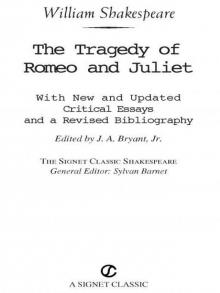 Romeo and Juliet
Romeo and Juliet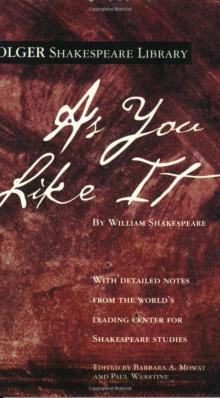 As You Like It (Folger Shakespeare Library)
As You Like It (Folger Shakespeare Library)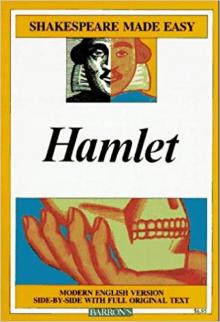 Hamlet
Hamlet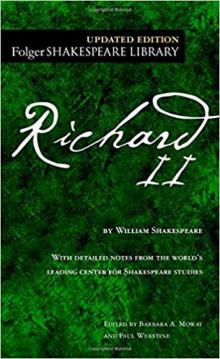 Richard II (Folger Shakespeare Library)
Richard II (Folger Shakespeare Library) Macbeth
Macbeth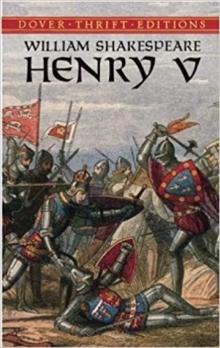 Henry V
Henry V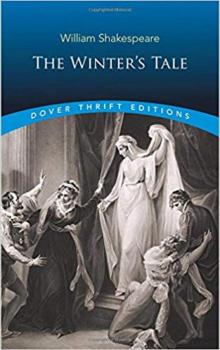 The Winter's Tale
The Winter's Tale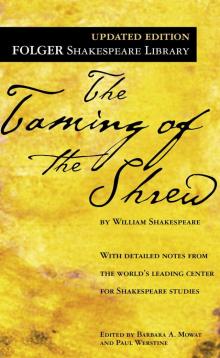 The Taming of the Shrew
The Taming of the Shrew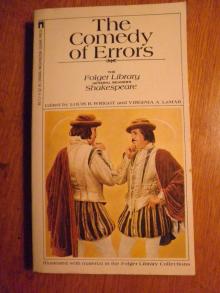 The Comedy of Errors
The Comedy of Errors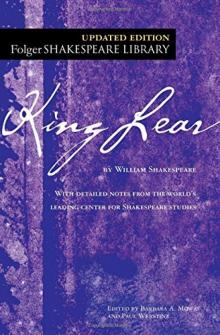 King Lear (Folger Shakespeare Library)
King Lear (Folger Shakespeare Library)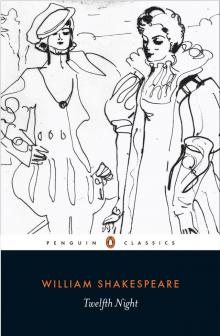 Twelfth Night
Twelfth Night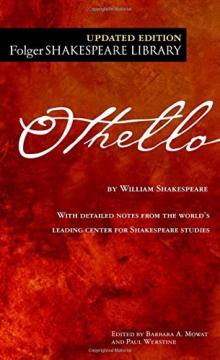 Othello
Othello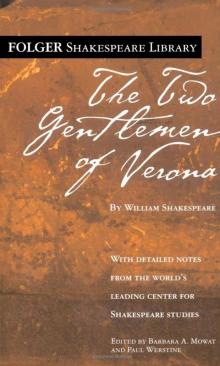 The Two Gentlemen of Verona
The Two Gentlemen of Verona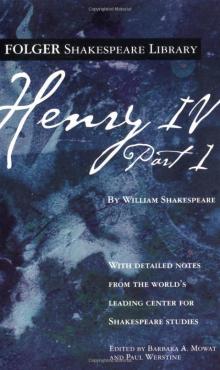 Henry IV, Part 1 (Folger Shakespeare Library)
Henry IV, Part 1 (Folger Shakespeare Library)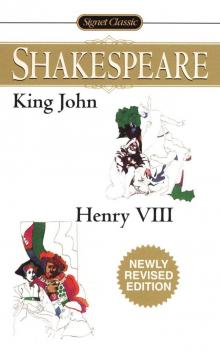 King John/Henry VIII (Signet Classics)
King John/Henry VIII (Signet Classics)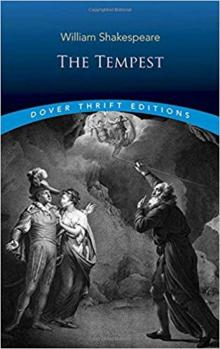 The Tempest
The Tempest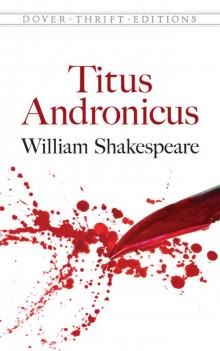 Titus Andronicus (Dover Publications)
Titus Andronicus (Dover Publications)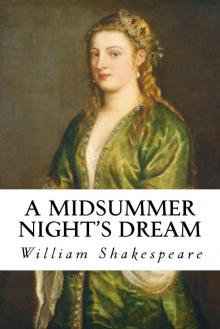 A Midsummer Night's Dream
A Midsummer Night's Dream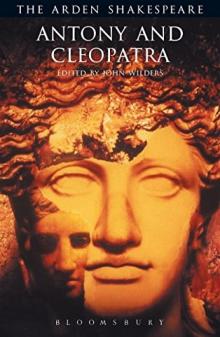 Antony and Cleopatra (Arden Shakespeare: Third Series)
Antony and Cleopatra (Arden Shakespeare: Third Series)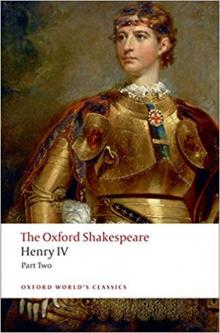 The Oxford Shakespeare: Henry IV, Part 2 (Oxford World's Classics)
The Oxford Shakespeare: Henry IV, Part 2 (Oxford World's Classics)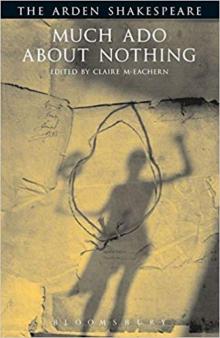 Much Ado About Nothing (Arden Shakespeare: Third Series)
Much Ado About Nothing (Arden Shakespeare: Third Series)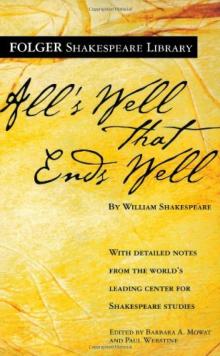 All's Well That Ends Well
All's Well That Ends Well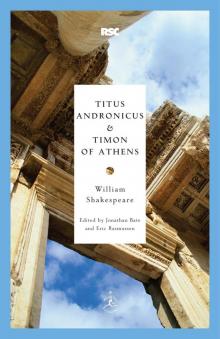 Titus Andronicus & Timon of Athens
Titus Andronicus & Timon of Athens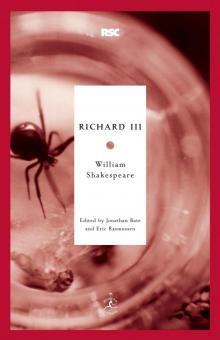 Richard III (Modern Library Classics)
Richard III (Modern Library Classics)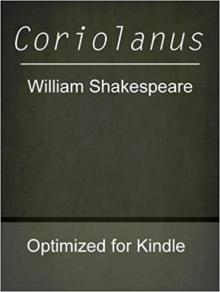 Coriolanus
Coriolanus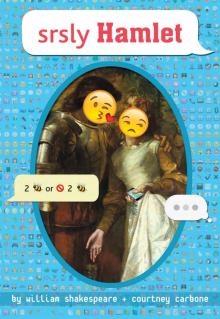 srsly Hamlet (OMG Shakespeare)
srsly Hamlet (OMG Shakespeare)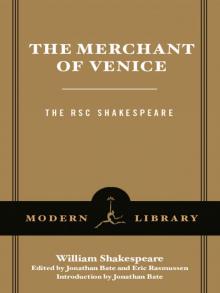 The Merchant of Venice
The Merchant of Venice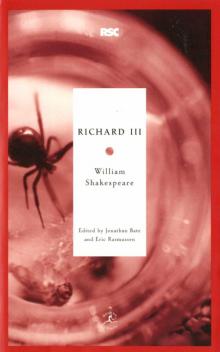 Richard III
Richard III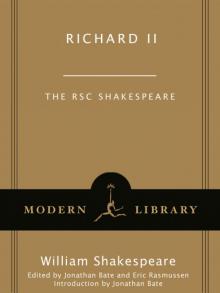 Richard II
Richard II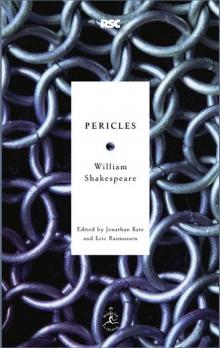 Pericles
Pericles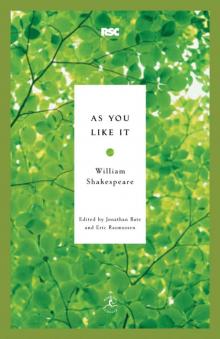 As You Like It
As You Like It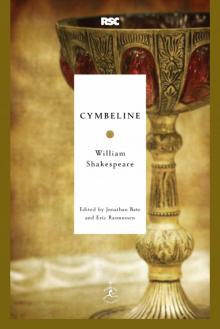 Cymbeline
Cymbeline Alls Wel that ends Well
Alls Wel that ends Well YOLO Juliet
YOLO Juliet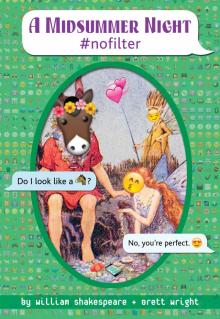 A Midsummer Night #nofilter
A Midsummer Night #nofilter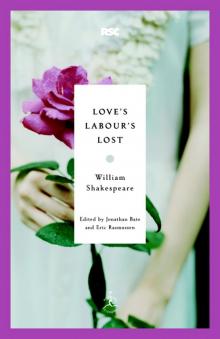 Love's Labour's Lost
Love's Labour's Lost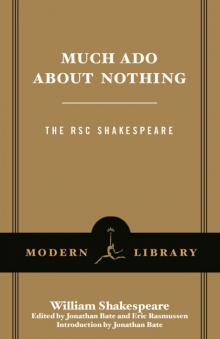 Much Ado About Nothing
Much Ado About Nothing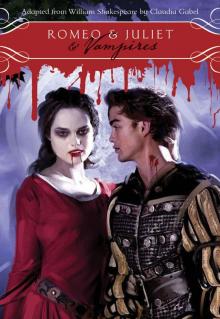 Romeo & Juliet & Vampires
Romeo & Juliet & Vampires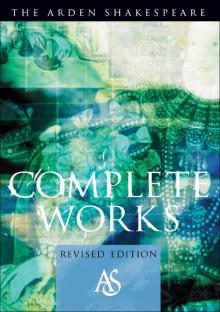 The Arden Shakespeare Complete Works
The Arden Shakespeare Complete Works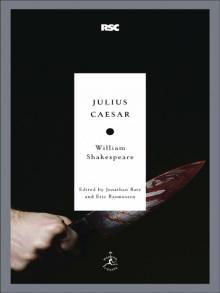 Julius Caesar
Julius Caesar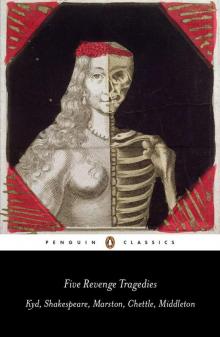 Five Revenge Tragedies: The Spanish Tragedy, Hamlet, Antonio's Revenge, The Tragedy of Hoffman, The Revenger's Tragedy (Penguin Classics)
Five Revenge Tragedies: The Spanish Tragedy, Hamlet, Antonio's Revenge, The Tragedy of Hoffman, The Revenger's Tragedy (Penguin Classics)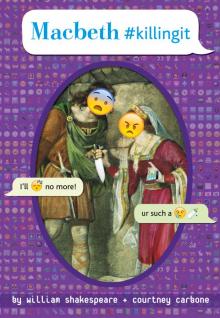 Macbeth #killingit
Macbeth #killingit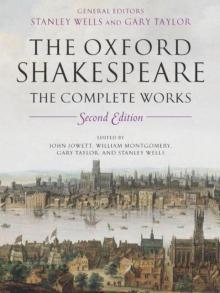 The Oxford Shakespeare: The Complete Works
The Oxford Shakespeare: The Complete Works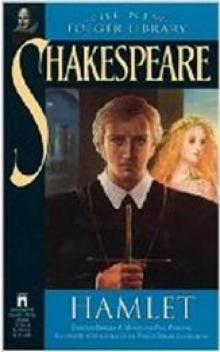 Hamlet, Prince of Denmark (Collins edition)
Hamlet, Prince of Denmark (Collins edition)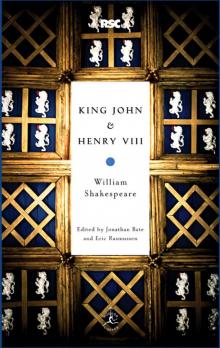 King John & Henry VIII
King John & Henry VIII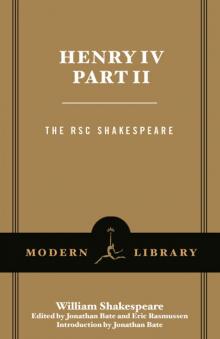 Henry IV, Part 2
Henry IV, Part 2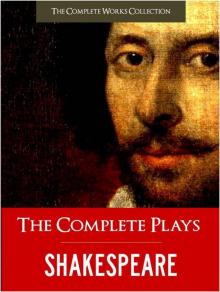 Complete Plays, The
Complete Plays, The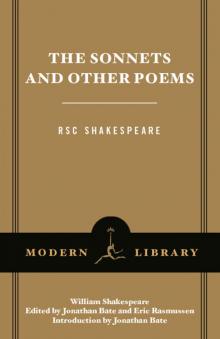 The Sonnets and Other Poems
The Sonnets and Other Poems Antony and Cleopatra
Antony and Cleopatra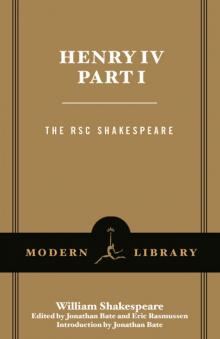 Henry IV, Part 1
Henry IV, Part 1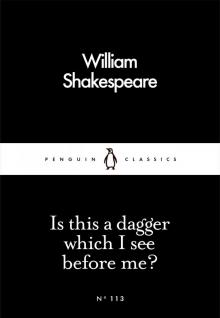 Is This a Dagger Which I See Before Me?
Is This a Dagger Which I See Before Me?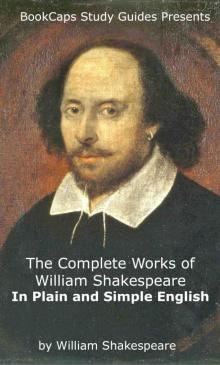 The Complete Works of William Shakespeare In Plain and Simple English (Translated)
The Complete Works of William Shakespeare In Plain and Simple English (Translated)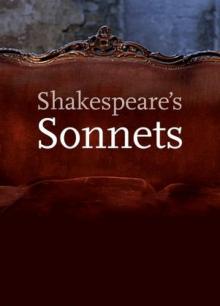 The Sonnets
The Sonnets